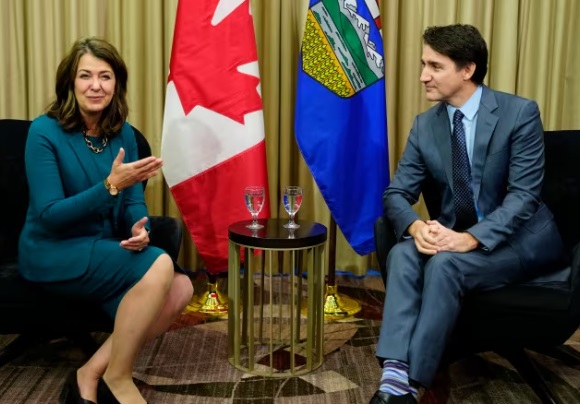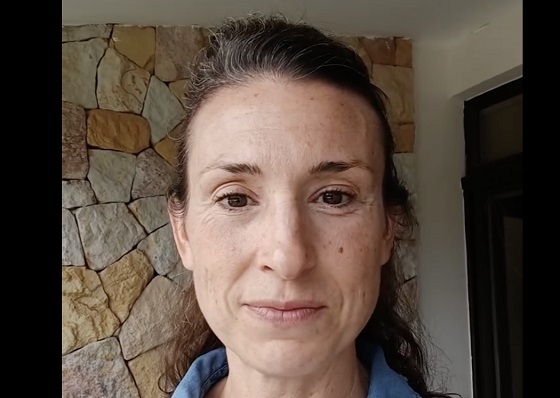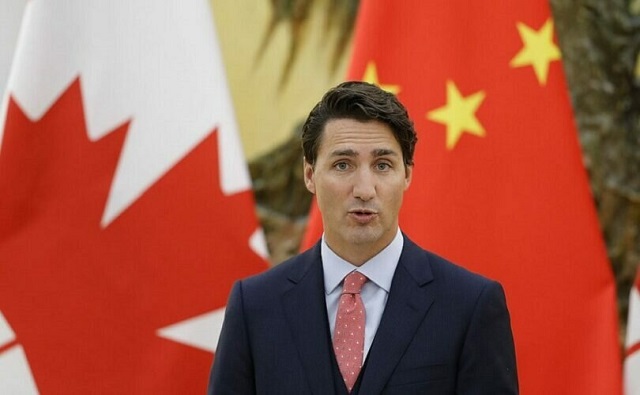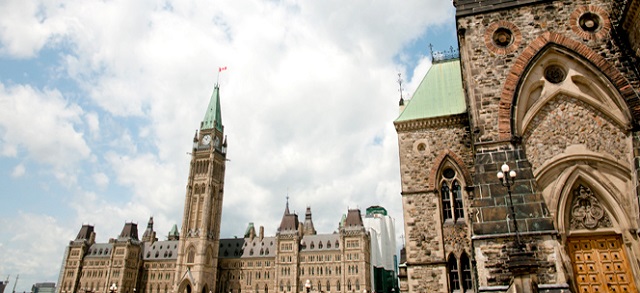Alberta
Tim Hortons app violated privacy laws in collection of ‘vast amounts’ of sensitive location data
People who downloaded the Tim Hortons app had their movements tracked and recorded every few minutes of every day, even when their app was not open, in violation of Canadian privacy laws, a joint investigation by federal and provincial privacy authorities has found.
The investigation concluded that Tim Hortons’ continual and vast collection of location information was not proportional to the benefits Tim Hortons may have hoped to gain from better targeted promotion of its coffee and other products.
The Office of the Privacy Commissioner of Canada, Commission d’accès à l’information du Québec, Office of the Information and Privacy Commissioner for British Columbia, and Office of the Information and Privacy Commissioner of Alberta issued their Report of Findings today.
The Tim Hortons app asked for permission to access the mobile device’s geolocation functions, but misled many users to believe information would only be accessed when the app was in use. In reality, the app tracked users as long as the device was on, continually collecting their location data.
The app also used location data to infer where users lived, where they worked, and whether they were travelling. It generated an “event” every time users entered or left a Tim Hortons competitor, a major sports venue, or their home or workplace.
The investigation uncovered that Tim Hortons continued to collect vast amounts of location data for a year after shelving plans to use it for targeted advertising, even though it had no legitimate need to do so.
The company says it only used aggregated location data in a limited way, to analyze user trends – for example, whether users switched to other coffee chains, and how users’ movements changed as the pandemic took hold.
While Tim Hortons stopped continually tracking users’ location in 2020, after the investigation was launched, that decision did not eliminate the risk of surveillance. The investigation found that Tim Hortons’ contract with an American third-party location services supplier contained language so vague and permissive that it would have allowed the company to sell “de-identified” location data for its own purposes.
There is a real risk that de-identified geolocation data could be re-identified. A research report by the Office of the Privacy Commissioner of Canada underscored how easily people can be identified by their movements.
Location data is highly sensitive because it can be used to infer where people live and work, reveal trips to medical clinics. It can be used to make deductions about religious beliefs, sexual preferences, social political affiliations and more.
Organizations must implement robust contractual safeguards to limit service providers’ use and disclosure of their app users’ information, including in de-identified form. Failure to do so could put those users at risk of having their data used by data aggregators in ways they never envisioned, including for detailed profiling.
The investigation also revealed that Tim Hortons lacked a robust privacy management program for the app, which would have allowed the company to identify and address many of the privacy contraventions the investigation found.
The four privacy authorities recommended that Tim Hortons:
- Delete any remaining location data and direct third-party service providers to do the same;
- Establish and maintain a privacy management program that: includes privacy impact assessments for the app and any other apps it launches; creates a process to ensure information collection is necessary and proportional to the privacy impacts identified; ensures that privacy communications are consistent with, and adequately explain app-related practices; and
- Report back with the details of measures it has taken to comply with the recommendations.
Tim Hortons agreed to implement the recommendations.
QUOTES
“Tim Hortons clearly crossed the line by amassing a huge amount of highly sensitive information about its customers. Following people’s movements every few minutes of every day was clearly an inappropriate form of surveillance. This case once again highlights the harms that can result from poorly designed technologies as well as the need for strong privacy laws to protect the rights of Canadians.”
“This report eloquently illustrates the risks inherent in the use of geolocation and the importance of transparent and accountable privacy practices. Without a suitable prior assessment, Tim Hortons collected sensitive information about its customers through its app, without their adequate knowledge or consent. It is to put an end to this kind of practice that Quebec has reviewed its legislation protecting personal information giving more powers to the Commission and making companies more accountable. ”
“This investigation sends a strong message to organizations that you can’t spy on your customers just because it fits in your marketing strategy. Not only is this kind of collection of information a violation of the law, it is a complete breach of customers’ trust. The good news in this case is that Tim Hortons has agreed to follow the recommendations we set out, and I hope other organizations can learn from the results of this investigation.”
“This investigation is yet another example where an organization has not effectively notified customers about its practices. Tim Hortons’ customers did not have adequate information to consent to the location tracking that was actually occurring. When people download and use these types of apps, it’s important that they know in advance what will happen to their personal information and that organizations follow through with their commitments.”
Alberta
Danielle Smith warns arsonists who start wildfires in Alberta that they will be held accountable

From LifeSiteNews
The Alberta government has created an ad campaign highlighting the fact that most fires are caused by humans and not ‘climate change,’ as many left-leaning politicians claim.
In preparation for the so-called wildfire “season,” Alberta Premier Danielle Smith sternly warned anyone caught starting blazes in her province, including arsonists, that they will face charges and be held fully “liable” for all costs associated with the fires.
“As we approach the wildfire season, it is important to understand that 67% of wildfires in Alberta are started by people,” Smith posted Monday on X.
“If you start a wildfire, you can be charged, fined, and held liable for all costs associated with fighting the wildfire.”
Smith made the comments after last year revealing that most of the wildfires in her province (500 of the 650) were caused by humans and not “climate change,” as has been pushed by the legacy media and opposition politicians.
“All I know is in my province we have 650 fires and 500 of them were human caused,” she said, “so we have to make sure that when people know that when it’s dry out there and we get into forest fire season that they’re being a lot more careful because anytime you end up with an ignition that happens it can have devastating consequences.”
To go along with Smith’s Monday message, the Alberta government has also created an ad campaign highlighting the fact that most fires are caused by humans and not “climate change,” as many left-leaning politicians claim.
As reported by LifeSiteNews last year, Smith ordered arson investigators to look into why some of the wildfires that raged across the vast expanse of the province had “no known cause” shortly after they spread.
During the campaign of Alberta’s 2023 election, Smith, whose United Conservative Party won a majority government, had to pause to deal with many wildfires that suddenly, out of nowhere, ravaged the province. The fires came on suddenly and uncharacteristically considering the heavy snowfall in the province in early March and rain in April.
LifeSiteNews reported that despite the arrest of multiple arsonists, Canada’s mainstream media and the federal government have been pushing a narrative attributing the recent wildfires to “climate change.”
Indeed, in January, LifeSiteNews reported that a man from Quebec admitted to starting 14 forest fires himself. This put a chill to the legacy media’s push that the fires in the province were caused by “climate change.”
However, statistics from Canada’s National Fire Database show that wildfires have gone down in recent years and peaked in 1989.
As for Canadian Prime Minister Justin Trudeau, he has repeatedly used “climate change” and forest fires as a catalyst for propping up his government’s much-maligned carbon tax, which Smith opposes. He has blamed the fires on “climate change.”
A June 2017 peer-reviewed study by two scientists and a veteran statistician confirmed that most of the recent global warming data have been “fabricated by climate scientists to make it look more frightening.”
Trudeau has been calling for increased bans on Canada’s natural resources, of which Alberta has in abundance.
Smith has vowed to fight Trudeau on his attacks against Alberta’s oil and gas industry.
The reduction and eventual elimination of so-called “fossil fuels” and a transition to unreliable “green” energy has also been pushed by the World Economic Forum (WEF), the globalist group behind the socialist “Great Reset” agenda in which Trudeau and some of his cabinet are involved.
Alberta
Free Alberta Strategy backing Smith’s Provincial Priorities Act

News release from Free Alberta Strategy
Premier Danielle Smith had a message for Ottawa last week.
Keep out.
On Wednesday, the Premier rolled out her latest weapon in the fight against federal intrusions into provincial jurisdiction.
If passed, Bill 18 – the Provincial Priorities Act – aims to align federal funding with provincial priorities, ensuring that said funding reflects Alberta’s interests.
The legislation stipulates that any agreements between the federal government and any provincial entities – including municipalities – must receive provincial approval to be considered valid.
Smith has already given it a nickname: “the stay-out-of-my-backyard bill.”
It’s an apt description of the legislation, especially considering that’s what the federal government has been doing for years – encroaching into Alberta’s jurisdiction.
The legislation shouldn’t come as a surprise to anyone.
We all know that most deals the Alberta government enters into with the federal government don’t work out for Albertans.
We end up paying more in federal taxes than gets spent in federal spending on the programs.
The programs come laden with restrictive conditions that undermine our autonomy, and are often detrimental to our ability to provide the services.
This is especially true with regard to the recent agreement between Ottawa and the provinces that allows the federal government to nationalize childcare.
The childcare agreement has come under heavy criticism due to funding shortfalls in the deal.
It also applies to housing, where despite Alberta accounting for 12% of the national population and experiencing the most rapid population growth, it received a mere 2.5% of the total $1.5 billion in federal housing funding last summer.
Jason Nixon, Minister of Seniors, Community and Social Services, is in charge of housing in Alberta – which is provincial jurisdiction.
On the latest rollout of conditional federal housing handouts, Nixon isn’t buying.
“We will not be bribed, with our own money, to increase the time it takes to get homes built with green energy that makes homes more expensive.”
The theory also applies to the federal government’s latest gambit – doing an end-around provincial negotiations and going directly to municipalities, who seem more interested in taking the money than the conditions attached.
Municipalities are provincial jurisdiction.
Bill 18 mandates that entities within Alberta’s jurisdiction, such as municipalities, universities, school boards, housing agencies, and health authorities, must seek the province’s approval before engaging in, modifying, extending, or renewing agreements with Ottawa.
Agreements between the federal government and provincial entities lacking Alberta’s endorsement will be deemed illegal under this legislation.
That’s Premier Smith’s message.
She’s had enough of it.
“It is not unreasonable for Alberta to demand fairness from Ottawa. They have shown time and again that they will put ideology before practicality, which hurts Alberta families and our economy. We are not going to apologize for continuing to stand up for Albertans so we get the best deal possible.
“Since Ottawa refuses to acknowledge the negative impacts of its overreach, even after losing battles at the Federal and Supreme Courts, we are putting in additional measures to protect our provincial jurisdiction to ensure our province receives our fair share of federal tax dollars and that those dollars are spent on the priorities of Albertans.”
Municipal Affairs Minister Ric McIver had additional thoughts:
“For years, the federal government has been imposing its agenda on Alberta taxpayers through direct funding agreements with cities and other provincial organizations. Not only does Alberta not receive its per capita share of federal taxpayer dollars, the money we do receive is often directed towards initiatives that don’t align with Albertan’s priorities.
“Albertans from all corners of the province expect our federal share of taxes for roads, infrastructure, housing and other priorities – not federal government political pet projects and programs in select communities.”
The Provincial Priorities Act is based on existing provincial legislation in Quebec – called “An Act Respecting the Ministère du Conseil executif” – which prohibits any municipal body from entering into or negotiating an agreement with the federal government or its agencies without express authorization from the Quebec government.
That’s right – the Quebec government has the same rule!
So, this boils down to the same argument we’ve been making for years – if Ottawa wants to step into our backyard, it must first seek Alberta’s approval.
Enough is enough – we won’t stand idly by as our interests are trampled upon.
It’s time for Ottawa to recognize Alberta’s autonomy and respect our right to determine our own future.
At the Free Alberta Strategy, we know that constant vigilance is necessary – for every fence we put up, the federal government tries to find a way around it.
We’ll continue to bring you information about what’s happening in Alberta’s backyard and fighting to keep Ottawa out.
The Free Alberta Strategy Team
-

 COVID-192 days ago
COVID-192 days agoPro-freedom Canadian nurse gets two years probation for protesting COVID restrictions
-

 espionage2 days ago
espionage2 days agoTrudeau’s office was warned that Chinese agents posed ‘existential threat’ to Canada: secret memo
-

 Economy2 days ago
Economy2 days agoMassive deficits send debt interest charges soaring
-

 International1 day ago
International1 day agoBrussels NatCon conference will continue freely after court overturns police barricade
-

 Business1 day ago
Business1 day agoBusiness investment key to addressing Canada’s productivity crisis
-

 Business1 day ago
Business1 day agoFederal budget fails to ‘break the glass’ on Canada’s economic growth crisis
-

 Jordan Peterson24 hours ago
Jordan Peterson24 hours agoJordan Peterson slams CBC for only interviewing pro-LGBT doctors about UK report on child ‘sex changes’
-

 Economy2 days ago
Economy2 days agoFederal budget: You can’t solve a productivity emergency with tax hikes







